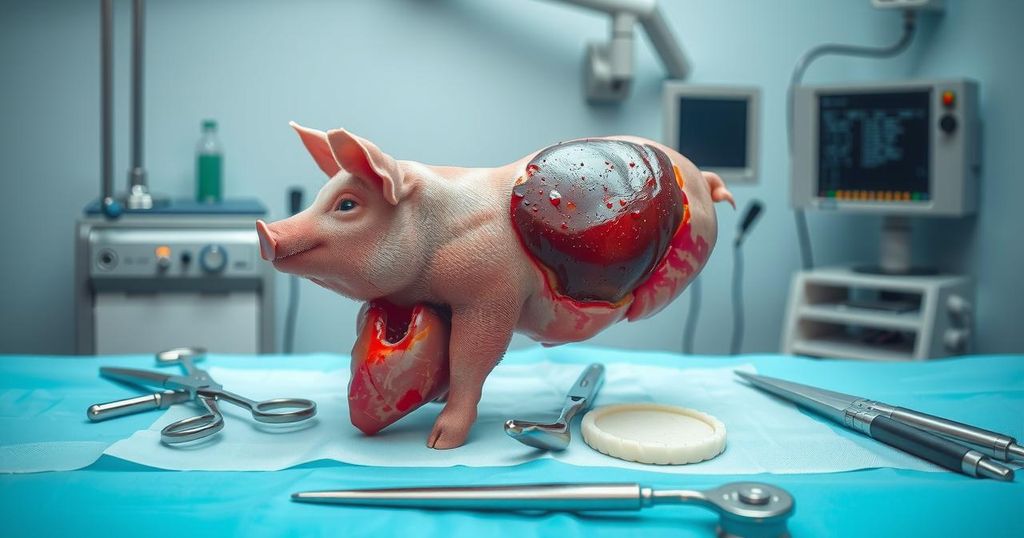Chinese Doctors Make History: First Pig Liver Transplant in Brain-Dead Patient
Chinese doctors have accomplished a world-first transplantation of a genetically modified pig liver into a brain-dead human, offering hope for future liver donation solutions. The procedure, although terminated early, demonstrated effective functions of the pig liver, prompting further research into its viability as a bridge organ while waiting for human donors.
In a groundbreaking advancement, Chinese doctors have successfully transplanted a genetically modified pig liver into a brain-dead human, marking the first such procedure globally. This achievement offers potential hope for individuals awaiting liver donations, amid a pressing shortage of human organs. Previous experiments with pig organs have demonstrated success in kidneys and hearts, but livers have posed significant challenges, particularly in human subjects.
Conducted at the Fourth Military Medical University in Xi’an, China, the transplant involved a liver from a genetically modified miniature pig with six gene edits aimed at enhancing compatibility. The operation took place on March 10, 2024, and, although it was terminated after ten days at the family’s request, initial findings indicated that the pig liver performed effectively, contributing to bile secretion and protein production.
This procedure was classified as an auxiliary transplant, wherein the brain-dead patient retained their original liver while the pig organ acted as a supplementary “bridge organ” to assist individuals with failing livers during the waiting period for human donors. Over the course of the trial, doctors observed critical functions such as blood flow and immune response related to the pig liver’s performance.
Study co-author Lin Wang expressed optimism about the outcomes, citing that the liver “functioned really well.” However, experts caution that this early step does not verify the liver’s ability to serve as a complete human liver replacement, as livers perform multiple vital functions compared to simpler organs like hearts. Notably, the pig liver’s output of bile and key proteins was significantly lower than that of a human liver.
Further research involving longer observational periods and trials in living humans is essential to confirm the viability and effectiveness of this innovative transplantation. Collaboration among researchers from the United States was highlighted as fundamental to the progress achieved. Although previous experiments in the U.S. did not yield successful outcomes, experts believe this step marks significant progress toward potential future applications in liver transplantation.
In conclusion, the pioneering transplant of a genetically modified pig liver into a brain-dead human by Chinese doctors represents a significant milestone in medical science. While initial results are promising, further research is crucial to evaluate the long-term efficacy and compatibility of pig livers as a potential aid in liver transplantation. This breakthrough highlights the importance of continued innovation and collaboration in addressing the critical shortage of donor organs.
Original Source: www.ndtv.com








Post Comment